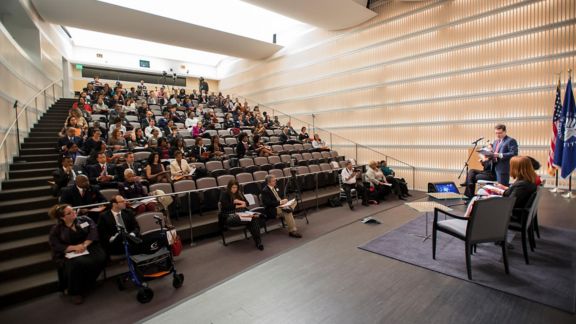HeartMath for Youth Resiliency & Violence Prevention

Problem
There is a lack of effective approaches to reducing youth violence and the impact of child abuse and neglect, especially in schools.
Reducing exposure and building resiliency to child abuse and neglect, youth violence, dating violence, sexual assault, and self-harm requires community-wide efforts. Targeted approaches to reduce subtypes of violence are costly and miss the concentric overlap of violence involvement.
Solution
NORC is evaluating a neurophysiological curriculum as a universal, trauma-informed intervention to build youth resiliency and prevent violence.
Funded by the Centers for Disease Control and Prevention (CDC), principal investigator Elizabeth Mumford is collaborating with Dr. Jeff Temple (University of Texas Medical Branch) and the HeartMath Institute to evaluate the effectiveness of the HeartMath Smart Brain Wise Heart curriculum to build youth resiliency and reduce youth violence, sexual violence, teen dating violence (TDV), and suicidal ideation.
Faculty and students learned about the relationship between breathing, their heart rhythms, and their physical and mental states. These physiological lessons were imparted as foundational skills for self-management, self-awareness, social awareness, responsible decision-making, and relationship skills.
Result
A rigorously tested universal intervention will have significant benefits for youth, their families, and educators.
Developing a universal intervention to impact youth, educators, and families through the school community has the potential to streamline school-based resources for efficient violence prevention, thus saving costs and time for academic goals and providing fundamental skills for abused and neglected youth to break cycles of violence.
Related Tags
Project Leads
-
Elizabeth Mumford
Senior FellowPrincipal Investigator








